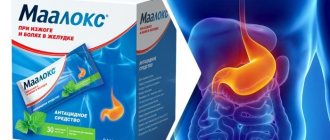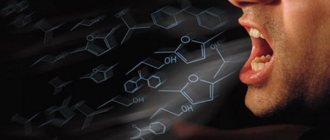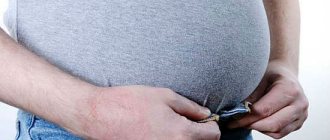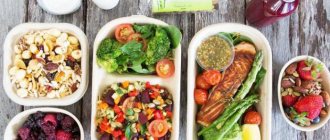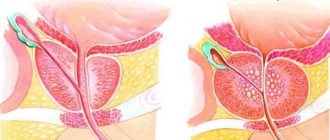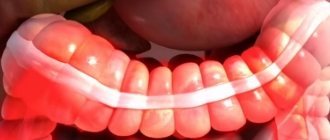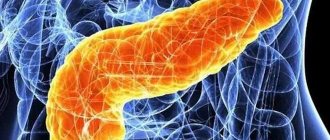Each of us at least once in our lives has experienced one of the most unpleasant sensations - bloating, the causes and treatment of which differ in each case.
Sometimes the problem you are looking for is caused by an excessive amount of foods eaten that cause fermentation, while in other cases they provoke swelling of diseases of various etiologies, which need to be dealt with as quickly as possible.
According to statistics, about 90% of people around the world worry about flatulence from time to time. But only 30% of them have diseases or pathologies of the gastrointestinal tract, which are the cause of bloating.
Causes of bloating
If bloating appears an hour after eating, it is important to pay attention to the frequency of this symptom. If there has been overeating, a quick snack or consumption of a large amount of harmful foods, then the reasons for the discomfort are obvious. In cases where bloating appears constantly, it is necessary to visit a doctor and undergo an appropriate examination.
The following factors can cause severe bloating after eating:
- frequent consumption of foods that cause flatulence (sweets, cabbage, legumes, as well as other ingredients with a high content of coarse fiber and starch, the ability to be poorly digested and assimilated is also different from fatty foods);
- swallowing air when consuming food and liquid (excessive amounts of air can be caused by talking while eating, quick snacks combined with poor chewing of food, and drinking carbonated drinks while eating);
- the habit of eating on the go or talking while eating;
- drinking in large sips;
- smoking while eating;
- Abuse of fatty foods that require considerable time to digest. Fats create a feeling of fullness and heaviness in the stomach, causing bloating.
Diseases that may cause this article
If bloating occurs after eating, this may be a harbinger of existing gastrointestinal diseases:
- Bloating is observed in irritable bowel syndrome, in which motor function is impaired;
- Dysbacteriosis – a lack of bifidobacteria in the microflora, provokes the production of gases in the stomach after eating;
- Pancreatitis – failure of the pancreas (lack of enzymes);
- Celiac disease is a multifactorial disease, a digestive disorder caused by damage to the villi of the small intestine by certain foods containing certain proteins: gluten (gluten) and related cereal proteins (avenin, hordein, etc.) in cereals such as wheat, rye, barley.
- Helminthic infestations. Worms produce special substances that disrupt the functioning of the intestinal muscles. As a result, peristalsis slows down, food is retained and begins to rot. In addition, intestinal parasites, in some cases, can accumulate in a ball, which can cause a mechanical barrier in the path of moving food.
- Intestinal obstruction - the formation of tumors in the intestines.
Often, bloating after eating is associated with one of the above pathologies. Why is this happening? Due to the fact that the organs of the digestive tract are not able to timely and completely digest what they eat, food stagnates in the intestines.
After some time, it begins to wander and cause not only unpleasant sensations such as heaviness in the abdomen or swelling, but also symptoms such as constipation, severe gripping pain in the abdominal area, etc. In this case, therapy should be appropriate and timely.
What are the causes of flatulence
Excess gases in the intestines can appear in two ways. Everything you need to know about flatulence:
- exogenous, when gases come from outside, for example if we swallow excess air while eating or drinking;
- endogenous, when excess gases are formed inside the intestines as a side effect of food digestion or the body’s inability to absorb a particular product.
Here are the most common causes of flatulence. Everything you need to know about flatulence.
External (exogenous)
You accidentally swallowed a lot of air
A small amount of it enters the intestines every time we eat or drink. The key word here is “small”. This volume of air inside the gastrointestinal tract does not affect your well-being in any way.
But in some cases we swallow much more air than usual. It increases pressure inside the intestines and leads to flatulence. This happens when you:
- chew gum;
- sucking a lollipop;
- sucking or biting foreign objects, such as chewing a pen cap or biting your nails;
- smoke;
- drink through a straw;
- chatting actively while eating.
You were very hungry and grabbed food in large chunks
This eating behavior itself causes you to swallow more air. In addition, large pieces expand the esophagus - and air penetrates the gastrointestinal tract in impressive volumes.
You ate a product that increases gas production
Most often, increased formation of gases in the intestines is caused by Gas And Gas Pain - Mayo Clinic products with a high fiber content:
- legumes, in particular beans and peas;
- hard fruits such as apples or pears;
- vegetables, especially Intestinal gas Causes - Mayo Clinic various types of cabbage: cabbage, cauliflower, Brussels sprouts, broccoli;
- whole grain products: cereals, bread, bran.
You're drunk on soda
Firstly, the bubbles you swallow increase the amount of gas in the intestines. Secondly, carbonated drinks, especially diet ones, contain sweeteners - sorbitol or xylitol, which increase gas formation.
Internal (endogenous)
You are constipated
Normally, intestinal gases, if they become too much, easily and imperceptibly leave through the anus. But when constipated, it is difficult for them to escape. The pressure in the intestines increases.
When stool moves, excess air moves under high pressure to the anus. This causes rumbling in the stomach, and when gases are released, it is accompanied by a specific loud sound.
Your intestinal microflora is disturbed
A change in the number or composition of bacteria in the small intestine leads to the fact that food is digested more slowly and worse, and begins to ferment. This creates excess gases. This condition can be caused, for example, by taking antibiotics.
You have food intolerance
This means that the intestines cannot break down and absorb certain products, such as milk lactose or the gluten protein contained in grain foods (porridge, bread, pasta). Fermentation begins and foul-smelling gases are released.
Do you have diabetes?
Diabetes and the Gastrointestinal Tract seriously impairs digestive function: it impairs intestinal motility, changes its bacterial composition, and makes it difficult to absorb foods. Flatulence is just one of the consequences of these disorders.
You may be developing a gastrointestinal disease
Here are several diseases Intestinal gas Causes - Mayo Clinic, the symptom of which may be flatulence (and sometimes, in the early stages, the only one):
- gastroenteritis and other intestinal infections;
- irritable bowel syndrome;
- stomach ulcer;
- duodenal ulcer;
- gastroparesis is a condition in which the muscles of the stomach walls weaken;
- autoimmune pancreatitis;
- gallstones;
- cholecystitis;
- diverticular disease.
Types of flatulence
This clinical symptom is classified based on the causes that cause it:
- nutritional - associated with an incorrectly composed diet - abuse of fruits and vegetables, brown bread, soda and beer, as well as their incorrect combination with each other;
- dynamic - caused by a violation of the speed of intestinal contraction and slow digestion of food, most often occurs after surgical interventions on the digestive or genitourinary organs;
- digestive - its cause is disturbances in the digestive process (for example, the same hypolactasia and celiac disease);
- psychogenic - associated with mental disorders, including stress or shock;
- dysbiotic - develops due to changes in intestinal microflora, often occurs with gastritis, pancreatitis, cholelithiasis, etc.;
- high altitude - rarely diagnosed in patients, as it is associated with climbing to heights (for example, in the mountains). In this case, the cause of bloating is a decrease in atmospheric pressure.
Why is this happening?
“If you want to lose weight, eat as many vegetables as possible.” This is what most nutrition experts say. Sounds absolutely logical, right?
Vegetables contain few calories (in the vast majority only from 40 to 70 kcal per 100 grams), have a pleasant taste, and also take up more space in the stomach - which means they give us fullness. By doing so, they replace calories that you would otherwise get from higher-calorie foods.
In addition, in the article Is fiber as safe as is commonly believed? we told you that people often consume little fiber, which leads to constipation, digestive disorders, and even skin problems.
So what could be the problem with consuming vegetables? Unfortunately, many take the recommendation to eat vegetables too literally and begin to eat almost kilograms of them. Hippocrates also said: “in a cup there is poison, in a drop there is medicine!” Here this statement was more than true.
Farmers already eat cereals and fruits - where would we be without buckwheat with salad or rice with vegetables, and an apple is rightfully complete!
As a result, excessive amounts of fiber slow down the functioning of the intestinal tract:
the movement of feces is disrupted, bacteria, in joy from the huge amount of food, multiply with all their might, which means hello to the “cute” symptoms that come with this: bloated stomach, flatulence, constipation, abdominal pain.
If the symptoms described above are not familiar to you, consider yourself very lucky. Chances are, a diet containing plenty of vegetables will work for you. However, an increasing number of people are noticing that diets with a similar approach (“salad for every meal!”), on the contrary, lead to constipation and an increasing waist width.
In addition, excess fiber also causes SIBO - bacterial overgrowth in the small intestine. The two factors that most often predispose to bacterial overgrowth are decreased gastric acid secretion and impaired small intestinal motility.
Those. a large amount of insoluble dietary fiber can disrupt the functioning of the small intestine and, as a result, bacteria from the large intestine can penetrate into the small intestine, beginning to actively multiply, because They have plenty of nutrition (again, fiber)!
Symptoms
Bloating is difficult to confuse with something else. Fermentation of gases is felt in the intestine, a fairly loud rumbling is heard from there, and discomfort arises. All this is accompanied by a feeling of fullness. It should be noted right away that bloating can be very painful. For example, if during constipation gases accumulate in the intestines and stool becomes compacted, they cause stretching of the walls and pain that goes away after defecation.
If there is a large amount of gas, accompanied by abnormal stool, the patient may experience nausea, an unpleasant taste in the mouth, belching, and loss of appetite. But even if flatulence does not cause pain or other symptoms, but is simply accompanied by a loud rumbling, it creates a lot of inconvenience for a person.
It is necessary to urgently consult a specialist if flatulence is accompanied by the following phenomena:
- blood in stool;
- severe sharp pain in any part of the abdomen;
- temperature increase;
- nausea and vomiting.
With prolonged constipation, accompanied by bloating, symptoms of general intoxication of the body may be observed: headache and dizziness, general weakness, irritability, shortness of breath.
When the level of toxins in the body increases, the liver and pancreas begin to work harder, which can lead to the development of dysfunction of these organs.
When to see a doctor
Sometimes bloating and shortness of breath occur due to certain foods or overeating. In such cases, symptoms usually disappear as soon as the food is digested. If bloating and shortness of breath do not go away within a day, a person should see a doctor. He may have an underlying condition that requires treatment.
A person should seek immediate medical attention if they experience the following symptoms along with bloating and shortness of breath:
- strong pain
- vomiting that lasts longer than a day
- loss of bladder or bowel control
- dark, bloody, or tarry stools
People need emergency medical attention if they experience shortness of breath and the following symptoms:
- severe chest pain that radiates to the arms, back, neck, or jaw
- tightness or heaviness in the chest
- vomit
Diagnostics
In case of persistent flatulence, accompanied by pain of various types and not corrected by diet, you should consult a gastroenterologist or therapist. To find out the reasons, he will draw up a diagnostic action plan. It is possible that you will need to consult a neurologist, infectious disease specialist or oncologist.
At the first stage, a physical examination of the patient helps to obtain valuable information that will suggest the presence of a particular pathology. The patient's history and complaints, auscultation, percussion, and external examination of the abdomen with palpation are collected.
- Inspection. The contours of the abdomen during a visual examination will help determine the cause and nature of flatulence - general or local. For example, if the anterior wall of the abdomen is stretched in the shape of a dome, folds from intestinal loops are visible, then there is a high probability of intestinal obstruction. Noticeable wave-like contractions running from left to right, together with thickening in the epigastric region, suggest mechanical blockage of the gastric sphincter. Redness (erythema) of the palms is a characteristic sign of latent cirrhosis of the liver.
- Auscultation. Bowel obstruction is indicated by whistling noises or sloshing sounds made by accumulated fluid and/or gases. Bowel sounds may be increased (before the obstruction), weakened or completely absent.
- Percussion. When tapping the abdominal wall, a pronounced tympanic sound is heard. The accumulation of fluid in the abdominal cavity is manifested by a dull, fluctuating sound in the flanks of the abdomen. When the body position of the subject changes, the nature of the sound changes.
- Palpation. When gases accumulate in the small intestine, the tense wall of the peritoneum and individual intestinal loops are palpated. You can often feel the movement of gases under your fingers. Sometimes palpation helps to identify the presence of a tumor in the abdominal cavity.
The second stage consists of laboratory and instrumental diagnostics.
Laboratory research:
- Stool lipidogram. Prescribed for suspected neoplasms, other diseases of the pancreas, enteritis, etc. Helps identify disorders of lipid breakdown and absorption.
- General blood analysis. Leukocytosis, an increase in ESR are characteristic of inflammatory processes in the digestive tract, a decrease in hemoglobin, and erythrocytopenia are characteristic of anemia.
- Coprogram. It will help identify fermentopathy, digestive disorders, the presence of helminths, and lamblia.
- Stool culture for dysbacteriosis. To determine the ratio of beneficial, opportunistic and pathogenic bacteria.
- Feces for pancreatic elastase-1. Necessary for studying the condition of the pancreas, which produces this proteolytic enzyme involved in the breakdown of elastin.
- Feces for carbohydrates. To identify pancreatic pathology and inflammatory bowel diseases.
- Biochemical blood test. An increase in bilirubin is observed in hepatitis, amylase in pancreatitis, hypoalbuminemia in nonspecific ulcerative colitis.
Instrumental studies:
- Sigmoidoscopy with visual examination of the rectal mucosa.
- Colonoscopy involves examining the colon using a special probe inserted through the anus.
- X-ray of the intestine with contrast. Studying the passage of barium spreading through the small intestine helps to detect obstructions, diverticula, ulcerations and other intestinal pathologies.
- Irrigoscopy is an X-ray examination of the large intestine into which contrast is injected.
- Ultrasound of internal organs. To assess the condition of organs, detect a possible inflammatory process or tumor formations.
- Ultrasonography of the intestines - ultrasound examination of the intestines. Prescribed to identify tumors and free fluid.
Possible causes of heaviness and bloating after eating
The occasional occurrence of unpleasant symptoms may be the result of bad habits. Heaviness and flatulence occur regularly if a person systematically eats incorrectly. However, this does not mean that manifestations should be ignored. If habits are not changed, sooner or later they will lead to gastrointestinal dysfunction or organic changes in tissues. Low-risk causes of heaviness and bloating that can be independently recognized and eliminated include:
- Binge eating. Eating too much food creates increased stress on the gastrointestinal tract, provokes stagnation, fermentation and putrefactive processes in its departments.
- Specific products. Some food itself is difficult to digest with the formation of a large amount of gases, such foods include mushrooms, white cabbage, legumes, baked goods, fatty meats, sweets, grapes.
- Incompatible products. Rye bread, carbonated drinks and milk do not go well with any food. It is not advisable to consume sweet fruit juices and confectionery products after starchy or protein foods.
- Unbalanced diets. The preference for cereals or proteins in the diet shifts the balance of nutrients entering the body, which is manifested by gastrointestinal dysfunction. Strict diets that involve fasting can also provoke excessive gas formation.
- Aerophagia. This is the name given to swallowing air along with food. This process always accompanies a meal. Normally, air from food leaves the stomach unnoticed by the person himself during breathing or when belching. However, if there is too much of it, air can enter the lower gastrointestinal tract. Increased aerophagia is observed with rapid absorption of food, poor chewing of food, and also if a person talks while eating.
- Alcohol abuse. Alcohol-containing products have an irritating effect on the digestive tract, causing its dysfunction. This is manifested by nausea, heaviness and bloating after eating.
- Untimely meals. If a person eats irregularly, often skips meals or eats too much before bed, he is likely to have problems with the intestines. An incorrect rhythm of nutrition provokes untimely release of digestive juices, a change in their concentration, which adversely affects the digestion process as a whole.
If it is noticed that unpleasant sensations are provoked by one or more of the listed factors, it is enough to simply eliminate them. Periodic or regular symptoms of bloating after eating indicate problems with the body or illness.
Stomach diseases
The most common is gastritis. The pathology is preceded by a change in the acidity of the gastric juice, which causes an inflammatory process to develop in its wall. The causes of gastritis include irregular or poor-quality nutrition, Helicobacter pylori infection.
Due to inflammation, the peristalsis of the organ is disrupted. Food lingers too long in the lumen or enters the small intestine too quickly. Often the food bolus does not have time to alkalize, which already occurs in the lower sections of the gastrointestinal tract. In this case, a large amount of gas is released, the microflora suffers, which is the basis for discomfort and bloating. Weak peristalsis provokes stagnation of the food bolus and putrefactive processes. Gastritis can be recognized by the accompanying symptoms:
- belching air;
- heartburn;
- nausea after eating;
- pain on an empty stomach.
Ignoring gastritis leads to peptic ulcers of the stomach and duodenum. A complication of this pathology is a perforated ulcer, which is dangerous with peritonitis, sepsis and death.
Liver pathologies
Hepatitis and hepatosis, cystic and tumor formations in the liver, lesions of the bile ducts, cholelithiasis, cholecystitis, as well as metabolic disorders in the liver worsen the qualitative composition of bile. In some cases, it is released untimely or in insufficient quantities. However, liver secretion is considered the most important participant in digestion.
Bile emulsifies fats, eliminates pathogenic microbes, and naturally stimulates intestinal motility. With a lack of bile, the digestion process becomes incomplete. Almost all diseases of the liver and gallbladder can manifest as bloating after eating and stool disorders. Among the accompanying symptoms: dull or sharp pain in the right hypochondrium, yellowing of the skin and mucous membranes (not always), weakness, chronic fatigue, irritability.
Pathologies of the pancreas
Pancreas, the pancreas, secretes pancreatic juice. This substance is saturated with digestive enzymes, which, when mixed with bile and other substances, ensure the breakdown of food into molecules for their complete absorption. With diseases of the pancreas, the composition of the juice changes, and there are not enough enzymes for the complete processing of food products. Hence, stagnant processes and fermentation, disturbances in the absorption of nutrients.
Pancreatic insufficiency against the background of inflammatory and cystic changes, when the functioning of the ducts and sphincters is disrupted, can provoke bloating after eating. Enzyme deficiency is manifested by stool disorders, the presence of undigested food particles in the stool, and girdle pain in the abdomen of varying degrees of intensity.
Bowel diseases
Bloating, flatulence and increased flatulence are signs of many diseases of the small and large intestines. Inflammation and organic changes in it provoke dysfunction, expressed by disturbances of peristalsis and absorption, changes in the composition of the biocenosis, the formation of incorrect nerve impulses and disturbances in interaction with the central nervous system. Bloating, heaviness, and abdominal pain can be caused by:
- duodenitis;
- nonspecific ulcerative colitis;
- diverticulitis;
- Crohn's disease;
- irritable bowel syndrome;
- dysbacteriosis.
Only a doctor can distinguish pathological conditions, focusing on the results of the examination and the patient’s complaints. In all diseases, symptoms worsen after stress or dietary errors and appear weakly if a person tries to eat right. They are accompanied by pain and signs of general intoxication of the body. In almost all pathologies, it is possible to detect impurities in stool (mucus, pus, blood).
Infectious diseases
Intestinal dyspepsia can result from consumption of poor-quality food or water (dysentery, salmonellosis), contact with viruses (rotavirus infection), protozoa or helminths. In the modern world, getting infected is easier than ever, especially if a person suffers from reduced immunity or neglects the rules of personal hygiene (such as washing hands before eating, for example).
Bacterial and viral infections are characterized by an acute onset. Bloating develops after eating, progresses to abdominal pain, then nausea and vomiting. Symptoms are triggered by inflammation of various parts of the gastrointestinal tract, most often combined. Dangerous signs are increased body temperature, uncontrollable vomiting, profuse diarrhea.
Helminthic infestations are less pronounced. All symptoms are mild, but they bother the patient regularly. Signs of helminthiasis include digestive disorders, changes in stool character, abdominal pain, weakness, fatigue, itching in the perianal area, and weight loss.
Intestinal obstruction
This condition is acute and requires surgical intervention. Depending on the degree of disruption of intestinal passage, partial or complete obstruction is distinguished. It can be provoked by intestinal volvulus, the presence of foreign bodies in the intestines, tissue necrosis or disruption of innervation, and the accumulation of parasites.
With complete obstruction, the symptoms are bright and recognizable. They include severe abdominal pain, diarrhea followed by constipation, impaired passage of gases from the intestines up to their complete absence, nausea, vomiting, and asymmetrical enlargement of the patient’s abdomen. With partial obstruction, bloating and constipation become regular occurrences.
Substance intolerance
Hypersensitivity to certain substances is called food allergy. If allergens get inside, bloating after eating and upset stool may occur. They are also accompanied by external signs such as diathesis, urticaria, and swelling of the mucous membranes. Sensitivity can be genetically determined and appear in childhood or occur at an older age. The most common food allergens are bee products, nuts and seeds, food additives and preservatives.
Useful information: Biliary dyskinesia: treatment (8 drugs, diet), more than 15 symptoms in adults. How to prevent stone formation
Intolerance or inability to digest certain substances is called malabsorption. In this case, the patient’s body lacks or lacks certain enzymes. The most common intolerances are lactose and gluten. With prolonged contact with these substances, malabsorption syndrome or enteropathy develops, a characteristic symptom of which is flatulence and discomfort in the abdomen after eating. Secondary signs include slow development (in children), weakness and increased fatigue, weight loss, and vitamin deficiency.
Other causes of abdominal discomfort after eating
Regular stress can cause bloating and pain. The functioning of the intestines is closely related to the state of the nervous system. Vegetative-vascular dystonia, neuroses, and psycho-emotional stress can cause disturbances in the functioning of the entire gastrointestinal tract and intestines.
Flatulence and discomfort after eating may be associated with metabolic disorders. This happens with diabetes, obesity, and thyroid pathologies. People with excess body weight experience a chronic increase in intra-abdominal pressure, against which chronic diseases of the stomach and intestines develop.
Tumor formations in the gastrointestinal tract can also disrupt intestinal function. Their localization does not play such a significant role. Cancers of the stomach, liver, pancreas and intestines can equally result in regular bloating after eating. Often, tumor processes are accompanied by unexpressed symptoms (weight loss, fatigue, dull and aching pain, lack of appetite).
Medications and nutritional supplements can be provocateurs of unpleasant symptoms. Digestive disorders often accompany treatment with calcium supplements, hormones, non-steroidal anti-inflammatory drugs, and antispasmodics. Among women, gastrointestinal dysfunctions associated with the use of teas and diet pills (with chromium picolinate and garcinia extract in the composition) are very common.
How to treat and what to do if you have bloating after eating?
Abdominal bloating, accompanied by vomiting, acute abdominal pain, gas and stool retention, bleeding from the anus, a sharp drop in blood pressure, or loss of consciousness indicates a condition that doctors call “acute abdomen.” In this case, you need to immediately call an ambulance to hospitalize the patient in a hospital, where, most likely, the patient will undergo surgical intervention.
Physiological bloating does not require special treatment; to get rid of such a symptom, it is quite enough to change your diet. In other cases, the causes and treatment of bloating and food are two interrelated factors. Often, it is quite sufficient to use conservative therapy methods, namely:
- taking medications;
- maintaining a gentle diet;
- use of alternative medicine methods.
Clinicians prescribe the following groups of medications to their patients:
- Sorbents. These are drugs that absorb toxins and harmful substances, eliminate increased gas formation and bloating. Popular products are activated carbon, Enterosgel, Polysorb, Smecta. Medicines are taken according to instructions, activated carbon - at the rate of 1 tablet per 10 kg of weight.
- Drugs that eliminate flatulence (so-called defoamers). This list includes Espumisan, Infacol, Simikol, Simethicone, Mezim Forte. The active substances of the medications eliminate increased gas formation, facilitate the absorption of gases into the blood and their removal from the rectum.
- Herbal remedies with carminative effect. At the pharmacy you can buy “Carminative collection”, “Dill water”, tincture of fennel and caraway fruits, which reduce gas formation in the intestines.
- Antispasmodics. If bloating is accompanied by painful cramps, you can take antispasmodics (Mebeverine, Buscopan, Drotaverine, Papaverine). Enzyme preparations (Pancreatin, Creon, Festal) will help improve digestion and eliminate flatulence.
If the cause of bloating is dysbacteriosis, take probiotics (Linex, Bifidumbacterin, Bifiform). These products contain beneficial lactic acid bacteria, which will help restore beneficial microflora and normalize digestive processes.
The fight against flatulence with a gentle diet involves following several rules:
- complete rejection of fatty and spicy foods, as well as those foods that cause increased gas formation;
- preparing dishes using the most gentle methods. The main methods are boiling and steaming, stewing and baking without adding fat;
- eating food up to six times a day, but in small portions;
- eating meals every day at the same time;
- chewing foods thoroughly;
- consumption of food in a calm environment;
- control over the temperature of the food - it should not be excessively hot or extremely cold.
Good results can also be achieved by using traditional medicine, but before using them it is best to consult with your doctor. Non-traditional recipes include the use of:
- dill water;
- cumin and carrot seeds;
- fennel and cardamom;
- ginger and horseradish;
- coltsfoot;
- dandelion and plantain;
- St. John's wort and yarrow;
- bird cherry and cucumber;
- anise seeds and valerian root.
Surgical intervention is used when conservative medicine is unsuccessful, as well as for individual indications.
How to deal with bloating?
Regardless of whether you are planning to visit a specialist or are sure that the cause of your bloating belly is due to behavioral factors, following some simple rules can improve your well-being.
It is possible for a person to reduce the behavioral factors of bloating
Nutrition
The first step is to review the menu and correctly arrange the dishes and products in them. It is undesirable to include a lot of varied food in one meal - the stomach is unlikely to like the dubious food neighborhood. Preference should be given to easily digestible foods: lean meat with a light side dish (vegetables, rice), soups with chicken, fish or vegetable broth, a small amount of lactic acid products: yoghurt, kefir, cottage cheese.
Give preference to easily digestible foods
The diet should include fresh fruits and berries - it is better to replace dried fruits and biscuit-based sweets that cause gas. Animal oil should be replaced with vegetable oil - olive, grape seed, sunflower. You should not drink while eating - it is better to chew your food thoughtfully and thoroughly so that it mixes with saliva. The digestion process starts in the oral cavity, so there is no need to send pieces of food into the stomach, it should be in a mushy state.
The diet should include fruits and berries
It is important to respect food traditions. Avoid eating on the run; after preparing food, you need to sit down at the table, put down your book or gadgets, and completely immerse yourself in absorption. It is recommended to eat with a small spoon or cut foods into small pieces to make them easier to chew. The opinion that you don’t need to chew the components of soup is wrong - if there is anything other than broth in the spoon, you must chew it!
Video: Anti-bloating products
Help for the stomach
In order to enhance peristalsis and allow gases to escape naturally, you can take a leisurely walk after eating. There is no need to strain your body or perform any exercises – half an hour of walking is enough.
Self-massage of the abdomen
Self-massage has a good effect - after eating, you need to stroke your stomach clockwise for twenty minutes, gently pressing it with your palm. You should not feel any discomfort, but after a while you may feel the urge to go to the toilet. It is best to do this massage while standing or sitting. You should absolutely not lie down after eating. For this reason, the last meal should not occur before going to bed or taking a bath. Make sure that at least two hours pass between meals and hygiene procedures before going to bed.
A person’s emotional state is important for digestion, so it’s worth getting rid of stress and getting your nerves in order. If a person feels that his strength is at its limit, it is worth going on vacation or visiting a specialist who will prescribe sedatives. You can independently purchase a soothing tea or herbal tea at the pharmacy, which is good to consume in the evening.
Pharmacy drugs
There are several groups of pharmaceuticals that effectively combat both increased gas formation and associated troubles - flatulence, heartburn, abdominal discomfort after overeating or eating the “wrong” product.
The first group includes enterosorbents. They absorb toxins, products of rotting and fermentation, and effectively remove gases. However, these remedies are not suitable for long-term use, since along with harmful substances they “expel” useful ones from the stomach, so they can be used as a quick one-time aid.
"Polysorb"
"Enterosgel"
"Smecta"
Activated carbon
The second group includes carminatives that reduce gas formation, promote digestion, and relieve spasms. As a rule, such drugs are made on a plant basis and are approved for use by children and pregnant women.
"Tirozol"
"Sub simplex"
The third group is defoamers. These products are aimed at reducing the level of mucous foam, the bubbles of which contain gas. When the foam “sits” at the bottom of the stomach, gases are released and can come out - on their own or with the help of carminative medications.
"Espumizan L"
"Motilium"
The fourth and fifth groups are probiotics and enzymes. These drugs help well with weak digestive activity, problems with the pancreas, dysbacteriosis and other microflora disorders. Let's look at what specific medications can help with a bloated belly.
"Bifiform"
"Lactofiltrum"
"Creon"
"Mezim"
Perhaps you can decide on your own to take enterosorbents. For any other drug, you should consult a doctor or at least tell the pharmacist about the nature of the problems and ask for a recommendation on taking the medication. You can also use traditional medicine.
Video: Inexpensive remedies for bloating and gas
Folk recipes
There are many inexpensive and easy ways to relieve discomfort from excessive abdominal gas. Almost all folk recipes consist of herbal ingredients, which can be purchased at a pharmacy, at the market, or even grown on your own plot. Another advantage of such recipes is their safety.
Dill water or parsley tincture. These herbs are excellent at combating gas formation. To prepare an infusion, you need to pour a teaspoon of dry crushed herbs (or seeds, in the case of dill) with a glass of boiling water. You need to do this in a saucepan and bring the liquid to a boil, then reduce the heat. After ten minutes, you can strain the broth through a sieve, cool and drink in small sips.
Dill water
Mint collection. You need to mix one teaspoon each of mint, thyme and fennel, pour a mug of boiling water and keep covered until it cools. Then the solution is filtered and drunk, preferably in the morning and evening. Using the same principle, you can brew dandelion root, chamomile, and thyme.
Mint collection
Ginger root. In its raw form, ginger can be added to tea or simply poured into water at a comfortable temperature. If your stomach is bloated after eating, it is good to cut off a small piece of raw ginger and chew it thoroughly. This method will not only remove gases, but also kill pathogenic microbes.
Ginger
Caraway infusion. You need to take two teaspoons of cumin seeds, pour boiling water and keep covered for about twenty minutes. Then the infusion is filtered and consumed a quarter glass every thirty minutes.
Caraway
Video - Bloating. Causes and characteristics of bloating
Diet and nutrition rules
When you have bloating, the first thing you need to do is review your diet, not only by correctly composing your diet, but also by following some principles.
Principles of nutrition during gas formation:
- Eliminate from your diet foods that increase the production of gases in the intestines. These products include all legumes, including lentils, soybeans, beans, beans, and peas. It is important to exclude all varieties of cabbage, since regardless of the type of preparation, they provoke active production of gases in the intestines. Various types of bread, especially yeast and whole grain breads, butter pastries, sweets, chocolate, dairy products, vegetable salads, eggplants, and sweet peppers also contribute to the appearance of flatulence. Some fruits and berries should also be excluded, such as grapes, bananas, apricots, plums, apples, pears.
- It is also necessary to reduce the amount of fatty foods and fried foods consumed. Fat helps slow down digestion, allowing food digested in the stomach and intestines to have much more time to ferment and produce gas.
- You should also reduce the number of foods that contain large amounts of fiber. Of course, fiber is useful and necessary for normal digestion, but at the same time it is also a fairly active gas-forming factor. Reducing or eliminating such foods should be temporary, and once the problem is resolved, fiber foods should be gradually added to the diet.
- You should not consume food “on the go”, since in a hurry it is impossible to fully chew food, and this significantly impairs digestion. You should eat food slowly, chewing each piece slowly and thoroughly.
- It is important to keep fit and stay in motion. You can take up some kind of sport or just take more walks. Walking after eating is very beneficial as it helps improve digestion.
Treatment
Correction of the condition should be carried out taking into account the identified cause of the unpleasant symptoms. Self-medication is unacceptable, especially during pregnancy, lactation, childhood and old age.
Be sure to read:
What foods cause gas formation in the intestines?
First aid
The following measures will help alleviate the condition before visiting a doctor:
- Diet. It is important to find out which product could cause heaviness and bloating and remove it from the diet. Until the discomfort subsides, you should reduce the volume of meals, eliminate spicy, fried, and fatty foods.
- Drinking regime. Black tea, carbonated drinks, kvass are excluded. You are allowed to drink plain water and herbal infusions.
- Physical activity. A half-hour walk after eating helps relieve heaviness in the epigastrium and prevent bloating.
If the situation repeats, you should consult a doctor.
Diet
General recommendations:
- Frequent small meals. Gastroenterologists recommend eating 5-6 times a day with an interval of no more than 4 hours.
- The last meal should be light and take place 2-3 hours before bedtime.
- After eating, it is not recommended to take a horizontal position. The best option would be a leisurely walk. Serious physical activity after meals is prohibited.
- There is no need to rush while eating. It is important to chew your food thoroughly to make it easier to digest.
- You should limit your consumption of fried and fatty foods. Do not add large amounts of salt, seasonings, or spices to dishes.
Your doctor will give you precise nutritional recommendations after confirming the diagnosis. Before the doctor's conclusion, the proposed diet will help eliminate unpleasant symptoms and reduce the risk of complications.
Lifestyle
Recommended:
- limit the consumption of strong alcoholic drinks and reduce the share of weak alcohol;
- stop smoking;
- do not forget about regular walking;
- engage in sports or therapeutic exercises;
- do not sleep immediately after eating;
- control your weight and lose extra pounds.
Drug therapy
To eliminate heaviness in the stomach and bloating, the following groups of drugs are prescribed:
- Enzymes. Promotes digestion of food.
- Prokinetics. Stimulates the functioning of the gastrointestinal tract.
- Adsorbents. Helps remove toxins from the intestines. Prescribed with an interval of 2 hours between other medications.
- Antispasmodics. Help eliminate pain in the epigastric region.
- Drugs that reduce gas formation in the intestines.
- Means for normalizing stool. Depending on the nature of the accompanying disorders, laxatives or antidiarrheal drugs are selected.
- Probiotics. Restore intestinal microflora and help normalize digestion.
Be sure to read:
Methods for relieving constipation: natural and medicinal remedies
According to indications, other means are prescribed to help eliminate the underlying disease.
Folk recipes
To eliminate bloating and accompanying heaviness in the epigastrium, herbal medicine methods are used:
- decoction of chamomile, mint;
- onion infusion;
- ground milk thistle seeds;
- infusion of seeds of marjoram, caraway, yarrow, St. John's wort, calendula (in different combinations and proportions);
- a mixture of honey and apple cider vinegar.
The use of alternative medicine recipes is justified in complex therapy and not at the expense of medications. Treatment only with decoctions and infusions of herbs does not bring the desired effect.
Heaviness in the stomach and bloating, not associated with pathology of the digestive tract, are easily relieved by following a diet and changing lifestyle. For diseases of the gastrointestinal tract, consultation with a doctor and specialized care is necessary.
In continuation of the topic, be sure to read:
- Causes of bloating and increased gas formation, treatment methods
- What medications should I use for increased gas formation?
- Irritable bowel syndrome: symptoms and treatments
- Details about the coprogram: preparation, conduct and interpretation of the analysis
- Carminative drugs for adults and children: list of medicines
- Gastroenterocolitis: symptoms and treatment methods (diet, medications)
- Rectal fissure: causes, symptoms and treatment of pathology
- Why does a woman’s lower abdomen hurt and how to eliminate it?
- Heaviness in the stomach and abdomen after eating: pathological and non-pathological causes
- Why is there mucus in the stool and how to diagnose the cause?
Folk remedies
Folk remedies will also help with abdominal swelling:
- Parsley decoction – 20g. pour a glass of water, steam for half an hour, strain, drink a tablespoon at a time. up to 4-5 r.
- Dill water – 1 tbsp. Pour a glass of boiling water over the dried seeds, leave for a couple of hours, drink a quarter glass up to 2-3 r.
- Wormwood decoction – 1 tsp. pour a glass of boiling water, leave for half an hour, drink 1 tbsp. three times a day.
A good remedy that reduces gas formation in the intestines is a decoction of pumpkin seeds, tea with chamomile, St. John's wort or sage, a decoction of bird cherry fruits, leaves of coltsfoot or plantain. In order not to provoke unwanted complications, be sure to consult with your doctor before using traditional recipes.
Other symptoms
Feeling of a full stomach - after eating
A feeling of a full belly is most often a sign of indigestion or illness. In such cases, against the background of abdominal bloating, other symptoms may appear that aggravate the patient’s general condition.
Sometimes external bloating may not be accompanied by discomfort. Such cases are often associated with anatomical abnormalities and features of the stomach.
Symptoms to watch out for:
- Fever.
- Skin rash or hives.
- Sore throat, itchy eyes and other signs of allergies.
- Constipation or diarrhea.
- Nausea and vomiting.
- Blood in urine and stool.
- Weight loss.
- Soreness and swelling of the lymph nodes in the groin area, neck and armpits.
- Constant fatigue.
- Problems concentrating.
- Lump in the anal area.
Read: What can heaviness in the stomach and nausea signal after eating?
The listed symptoms may indicate the presence of a more severe pathology, manifested by a feeling of fullness in the stomach. Allergic reactions, poisoning and bleeding are especially dangerous.

